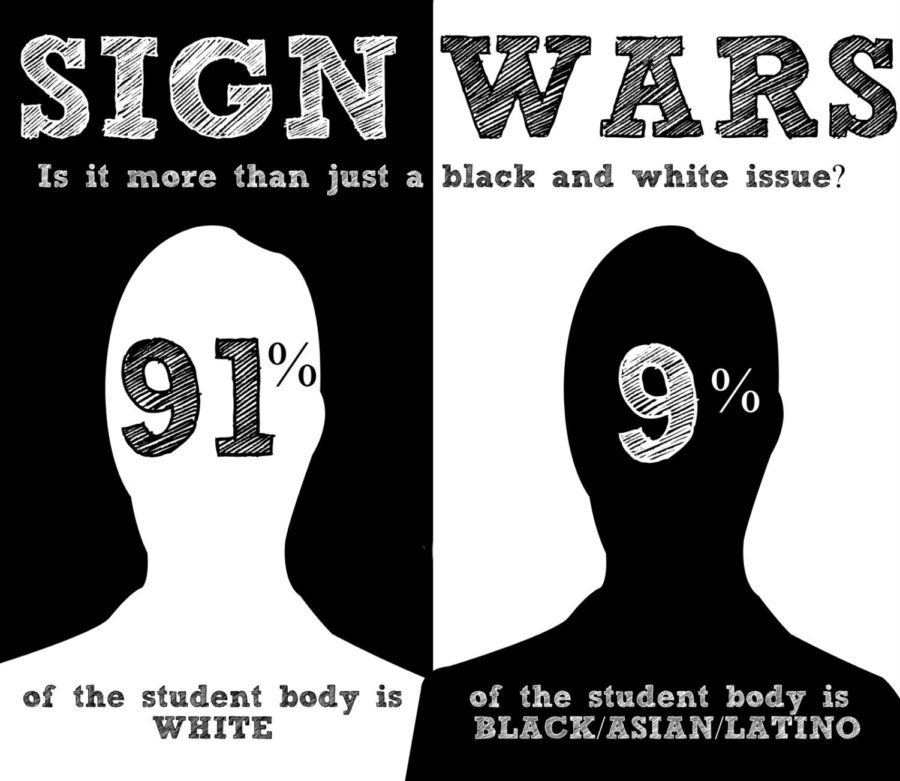School district discusses inclusivity in community
Parent and faculty meeting addresses the ongoing issue of diversity in East Grand Rapids
After a letter sent was sent to the Superintendent by a concerned community member inquiring about the way racism is taught and learned within the classroom, the board of education set its October agenda to discuss diversity efforts within the school district and to open up a larger discussion within the community.
This meeting, which was held in the little auditorium due to large audience of parents and community members, “provided an opportunity for community members to understand all that we do as a district,” said Jenny Fee Assistant Superintendent of Instruction.
In their presentation the board outlined the current curriculum which includes Cross-Cultural Competencies in Social Studies and English Language Arts and stated their strategic plans for the district stating “diversity must be taught through a series of developmentally appropriate, cumulative experiences over an extended period of time” while maintaining that “diversity experiences and teachings must be authentic, organic, and in context.”
Along with presenting the current curriculum requirements, addressing diversity and culture, the board also highlighted many initiatives taking place at the Elementary, Middle, and High School level such as: community partnerships, service learning projects, and a committee called Champions of Diversity.
Another issue that was addressed was the lack of diversity within the teaching staff at EGRPS and how the staff is taught to handle issues dealing with racism and bias. As a part of staff development there has been staff learning at GRCC’s Institute for Healing Racism, Implicit Bias Training through Grand Rapids Urban League, and all principals and assistant principals attended Restorative Justice Training at the Conflict Resolution Center. The Board also discussed their attempts to hire a more diverse staff by attending teacher career fairs, posting listing on the ISD website, and target outreach to historically black colleges. Despite their efforts the lack of success is not a problem limited solely to our district. Due to the fact that 83% of teachers in the United States are white, they stressed that this is also a national problem.
After the board had finished their presentation the floor was then opened for members of the community to voice their opinions. Several parents came forward to share their children’s experiences with racism at school and their thoughts about how the district can move forward in promoting acceptance.
Fee noted that the overall outcome of the meeting was positive with, “a few community members reaching out to building principals as follow ups to their offer of support. One building principal and I met with four community members, in two separate meetings, about how we could work together to advance our diversity work. We specifically talked about a community diversity committee whose work would parallel the work of the district and would be mutually supporting.”
“The teaching and learning of diversity is important and challenging work. It is not something that can be done within just the classroom walls. It takes education at home, in the community, and in the schools. We as a district understand this and look forward to working with parents and the community to advance our work,” said Fee.








